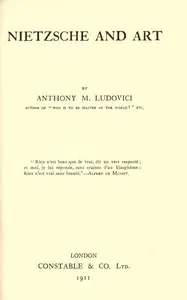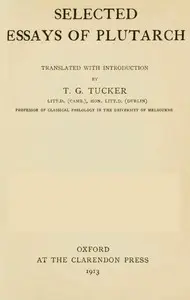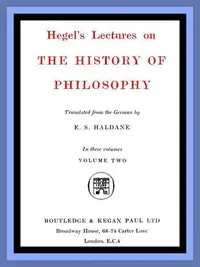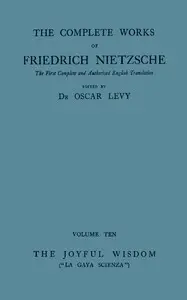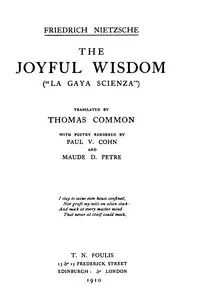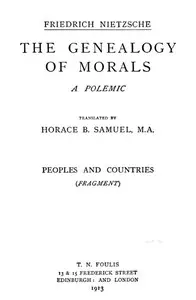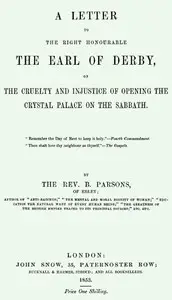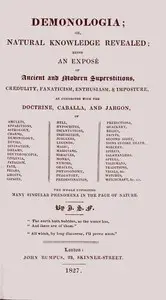"Early Greek Philosophy & Other Essays" by Friedrich Wilhelm Nietzsche is a compilation of philosophical writings that investigate the core ideas of ancient Greek thought. It touches on topics like what it means to exist, the importance of art, and how morality fit into Greek life. Nietzsche shares his opinions on modern society and brings up questions that can make people think. The essays look at themes of the Greek state, how women were viewed in ancient Greece, and the link between music and language; these writings show Nietzsche’s unique outlook on how struggle and competition are needed for culture and great ideas to grow. This collection questions modern ideas about the value of work, contrasting them with how the Greeks felt, and argues that a society's art and progress are connected to its social structure and beliefs.
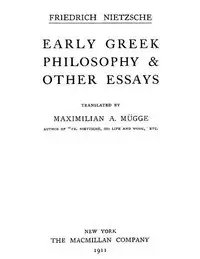
Early Greek Philosophy & Other Essays Collected Works, Volume Two
By Friedrich Wilhelm Nietzsche
Venture into ancient Greece through a philosopher's eyes, where art, society, and struggle define a civilization's greatness and challenge modern values.
Summary
About the AuthorFriedrich Wilhelm Nietzsche was a German classical scholar, philosopher, and critic of culture, who became one of the most influential of all modern thinkers. He began his career as a classical philologist before turning to philosophy. He became the youngest person to hold the Chair of Classical Philology at the University of Basel in Switzerland in 1869, at the age of 24, but resigned in 1879 due to health problems that plagued him most of his life; he completed much of his core writing in the following decade. In 1889, at age 44, he suffered a collapse and afterward a complete loss of his mental faculties, with paralysis and probably vascular dementia. He lived his remaining years in the care of his mother until her death in 1897, and then with his sister Elisabeth Förster-Nietzsche. Nietzsche died in 1900, after experiencing pneumonia and multiple strokes.
Friedrich Wilhelm Nietzsche was a German classical scholar, philosopher, and critic of culture, who became one of the most influential of all modern thinkers. He began his career as a classical philologist before turning to philosophy. He became the youngest person to hold the Chair of Classical Philology at the University of Basel in Switzerland in 1869, at the age of 24, but resigned in 1879 due to health problems that plagued him most of his life; he completed much of his core writing in the following decade. In 1889, at age 44, he suffered a collapse and afterward a complete loss of his mental faculties, with paralysis and probably vascular dementia. He lived his remaining years in the care of his mother until her death in 1897, and then with his sister Elisabeth Förster-Nietzsche. Nietzsche died in 1900, after experiencing pneumonia and multiple strokes.

